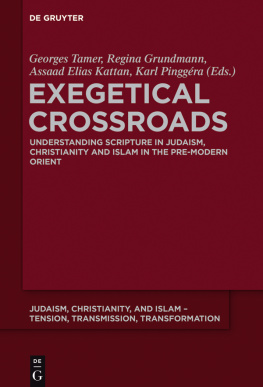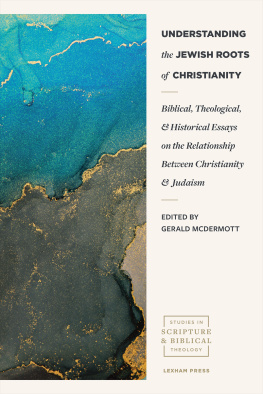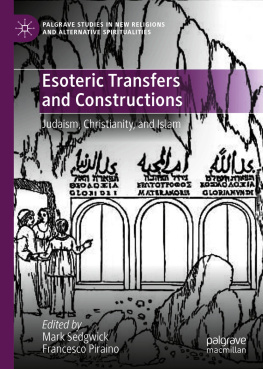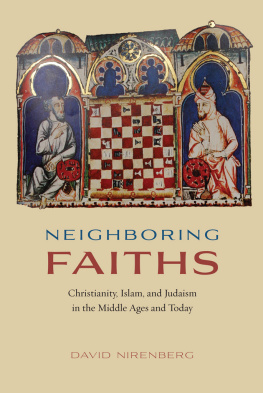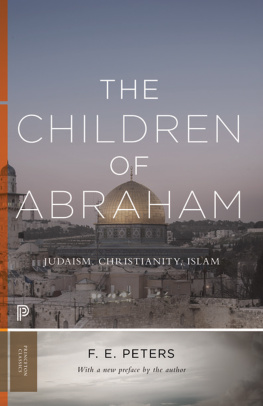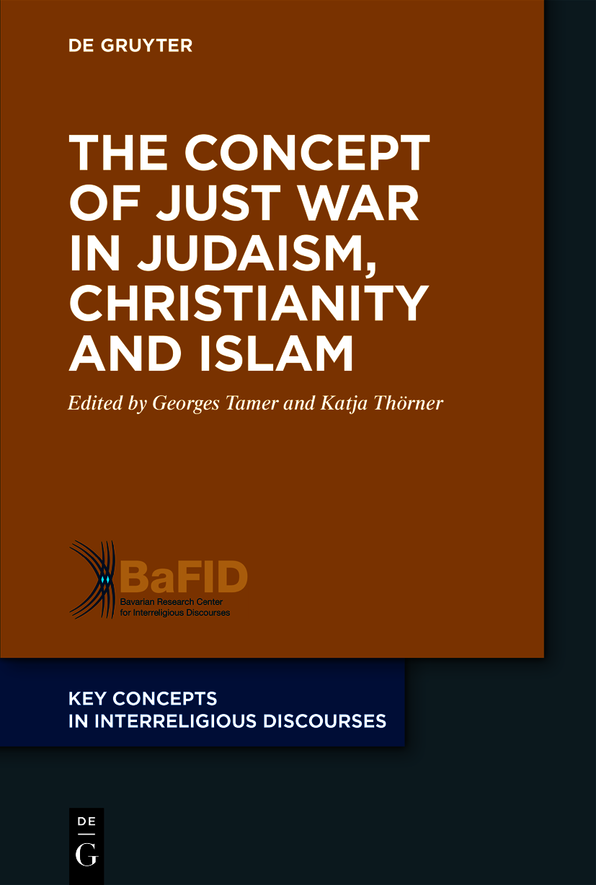The Deutsche Nationalbibliothek lists this publication in the Deutsche Nationalbibliografie; detailed bibliographic data are available on the Internet at http://dnb.dnb.de.
Daniel F. Polish
Preface
Any paper that purports to offer a presentation of Jewish perspectives on just war requires a preface. Such a paper cannot be a long, detailed excursus on the various traditional theories on the subject, or a history of the discussion of this idea in Jewish thought, for the simple reason that there are precious few examples of discussions that could be so characterized in foundational texts or among Jewish thinkers. The notion of just war is an innovation of modern thought, and, as a result, not a category or concept in Jewish traditional thought. In the first instance neither the Hebrew Bible nor rabbinic texts express themselves primarily in terms of abstract concepts. Both strata of Jewish scripture are given to the concrete and specific. Jews did not engage in philosophy until well into the Middle Ages. Even beyond that, there are hardly any texts that touch on the themes that would be included in the category of just war. In this regard Jewish religious tradition is markedly asymmetrical from the Christian and Muslim religious traditions. Those two traditions do have developed theories about the validity of the fighting of wars in general, and about assessing the appropriateness of any individual war in particular, and about proper conduct during battle. Jews have no Augustine.
The reason for this asymmetry needs to be recognized before any reflection on the theme can begin. The reason is rooted in the history of the Jewish people. Unlike Christians and Muslims, Jews have not had to engage with the issue of war and warfare, because between the year 72 BCE and 1948, they existed in a diasporic condition. They lacked political sovereignty and had neither the need nor the opportunity to wage war. Admittedly, various settlements of Jewish life could be affected by wars waged by others, and could even be the victims of wars and warlike attacks. But the agency to wage wars did not exist for the collective Jewish community. As a result, any conversation about waging war among Jewish thinkers could only be theoretical and speculative. Jewish thought tended toward the concrete reality of the lived experience of the Jewish people, and that of the Jewish thinkers; the issue of wars waged by them was marginal at best. Given that significant caveat, what a Jewish discussion of the issue of just war can consist of, is a presentation of the precious few instances in which that subject was explicitly addressed, and an attempt to extrapolate some kind of theory out of those descriptions and discussions of war and warfare that are presented in Jewish foundational texts.
1.1 No War is Just
It is, of course, possible for one to presume that the normative Jewish worldview rejects war outrightany war and all waras if the injunction seek peace and pursue it (Ps. 34:15) were the totality of Jewish thought on the subject. Or one could assume that the prophets Isaiah and Micah taught the only lesson about war:
They shall beat their swords into plowshares
And their spears into pruning hooks
Nation shall not lift up sword against nation
Neither shall they learn war any more
(Isa. 2:4; Mic. 4:3)
If ones only encounter with Jewish life was exposure to the liturgy, it might appear that peace was a Jewish sine qua non. The word shalom runs through the Jewish worship service like a leitmotif. In every service we encounter such sentiments as:
Spread over us the shelter of Your peace
We praise You, O God who makes peace and creates all things
Grant great peace to Israel Your people forever, for You O ruler are the Lord of all peace . We bless You O Lord who blesses His people Israel with peace
The words that conclude every section of the service similarly invoke the theme of peace:
May the One who made peace on high
This is noted even among the rabbis themselves. Leviticus Rabbah 9:3 notes that there is not a blessing or prayer in the standard liturgy that does not conclude with a prayer for or encomium to peace. An early prayer book of the Reform movement includes a more recently composed prayer in English which states
Grant us peace, Thy most precious gift, O Thou eternal source of peace, and enable Israel to be its messenger unto the peoples of the earth. Bless our country that it may ever be a stronghold of peace, and its advocate in the council of nations.
In concluding our consideration of the presence of the theme of peace in the Jewish liturgy, we would be remiss not to take note of a significant absence. It must be noted that nothing in that liturgy presents war as a desirable or even, at times, a necessary thing. We cannot avoid reflecting on the implications of the complete lack of any such sentiments.
Similarly, a casual reading of rabbinic literature might reinforce the impression that Jewish thought is pacifistic. A few examples out of many will have to suffice. Pirkei Avot 1:18 asserts, the world is sustained by three things: truth, justice and peace. Elsewhere in Pirkei Avot, Hillel admonishes us, be among the disciples of Aaron (1.12) The Tanhuma to Torah portion Shoftim 18 teaches that everything written in the Torah is written to promote peace. In the Talmud B. Shabbat 10b goes so far as to claim that Gods very name is peace. The rabbis estimation of shalom is exemplified in a refrain that is found with great frequency throughout the Talmud: great is peace Clearly, peace is a primary value to the rabbis.
And yet despite the frequency with which we encounter encomia to peace, several caveats are in order. The first is etymological. The reality is that despite the desirability of an absence of military conflict, the word shalom does not necessarily refer to that state of affairs. Rather, it derives from the word shalem which alludes to perfection, wholeness. It most often connotes a state of well-being without reference to military conflict. In this it resonates with the Sanskrit term Sukkha, the antonym to the Buddhist concept Dukkha, usually mistranslated as suffering but better translated as ill-being. Thus, aspirations for, and celebrations of, shalom most usually pertain to a generalized sense of well-being or wholeness rather than to an absence of armed conflict. Indeed, we can recall how Jews greet one another on the Shabbat: with the words Shabbat Shalom. It is safe to assume that the salutation is not an expression of hope that the recipient will be spared from international conflict, but rather that they will enjoy a sabbath of tranquility or contentment.
1.2 Shalom Can Mean Peace
This is not to suggest that shalom in the liturgy and shalom in rabbinic discourse can never mean peace. But the peace most often sought is not cessation of military hostility, but rather more homely absences of conflict: in the home, between individuals, within the community, or even inner tranquility. When


